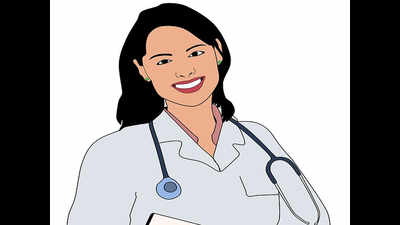- News
- City News
- kolkata News
- Treat patients as humans: Expert to general physicians
Trending
This story is from November 18, 2018
Treat patients as humans: Expert to general physicians

Representative image
KOLKATA : Compartmentalization of treatment was a worry and threatened to turn therapy into an organ-centric exercise which was not aimed at a holistic cure. Patients are increasingly being looked upon as organs and assessed ‘in parts’ which was a dangerous practice, felt Farokh E Udwadia, director of intensive care unit at Mumbai’s Breach Candy Hospital.
Speaking on “Forgetting the art of medicine” at the 5th Medicon International organized by Peerless Hospital and B K Roy Foundation with Royal College of Physicians Edinburgh and the Association of Physicians of India, West Bengal chapter on Saturday, Udwadia said it was time for general physicians to stage a comeback.“It is very important to look at things holistically and see patients as human beings who house those organs. A good, experienced general physician is a very important cog in the healthcare wheel. Earlier GPs used to visit patient homes but sadly that has declined. GPs should not be looked down upon. I think there will be a revival of the general practitioner,” said Udwadia.
He added that insurance is the single most important factor in extending quality healthcare to all sections of the population. “Only insurance can look after the expenses of treatment. The poor should be provided with insurance.”
Deepak Dwarakanath, vice president of the Royal College of Physicians of Edinburgh, agreed and pointed out that generalists and specialists should work in tandem. “There is a lot of knowledge exchange between generalists and specialists in UK which helps to provide high quality to aspiring healthcare professionals. In the UK, the current trend in medicine is to move away from cure to prevention,” said Dwarkanath.
“In healthcare, there is a missing link. We are trying to find that link through this platform. While it is encouraging to see organ transplants happening, we need to find out why are we having to depend on transplants. We need to help people safeguard their organs and lessen the disease burden.”
Speaking on “Forgetting the art of medicine” at the 5th Medicon International organized by Peerless Hospital and B K Roy Foundation with Royal College of Physicians Edinburgh and the Association of Physicians of India, West Bengal chapter on Saturday, Udwadia said it was time for general physicians to stage a comeback.“It is very important to look at things holistically and see patients as human beings who house those organs. A good, experienced general physician is a very important cog in the healthcare wheel. Earlier GPs used to visit patient homes but sadly that has declined. GPs should not be looked down upon. I think there will be a revival of the general practitioner,” said Udwadia.
He added that insurance is the single most important factor in extending quality healthcare to all sections of the population. “Only insurance can look after the expenses of treatment. The poor should be provided with insurance.”
Deepak Dwarakanath, vice president of the Royal College of Physicians of Edinburgh, agreed and pointed out that generalists and specialists should work in tandem. “There is a lot of knowledge exchange between generalists and specialists in UK which helps to provide high quality to aspiring healthcare professionals. In the UK, the current trend in medicine is to move away from cure to prevention,” said Dwarkanath.
Managing director of Peerless Hospital and B K Roy Foundation Sujit Kar Purkayastha said Medicon provided a platform where young doctors could listen to experts in various fields and learn.
“In healthcare, there is a missing link. We are trying to find that link through this platform. While it is encouraging to see organ transplants happening, we need to find out why are we having to depend on transplants. We need to help people safeguard their organs and lessen the disease burden.”
End of Article
FOLLOW US ON SOCIAL MEDIA










